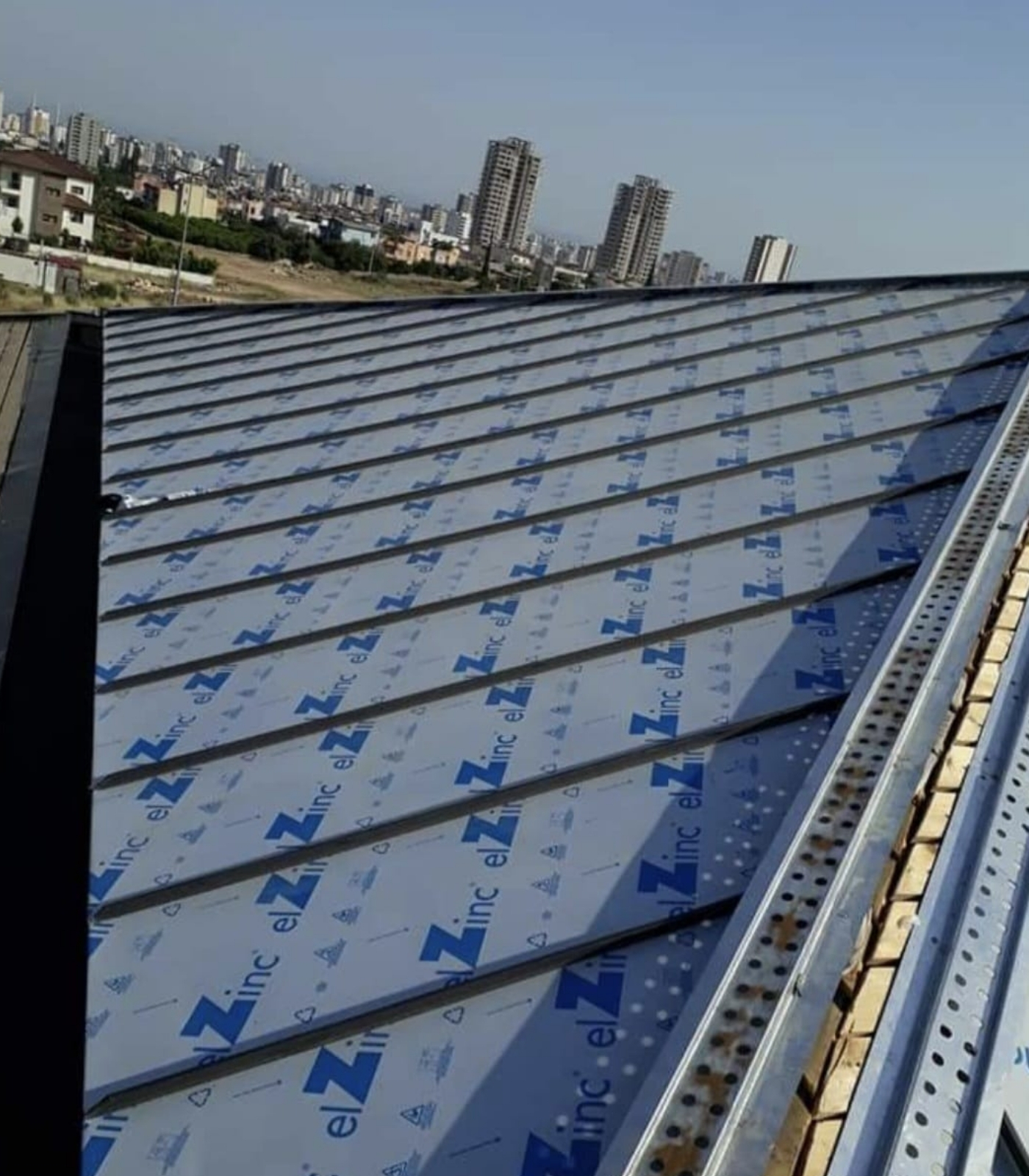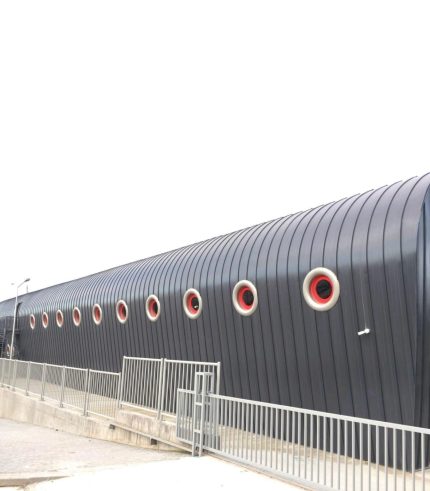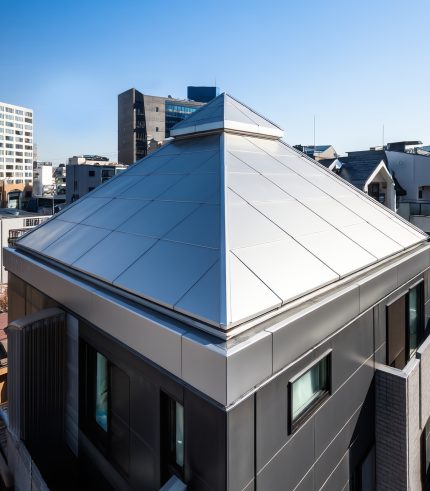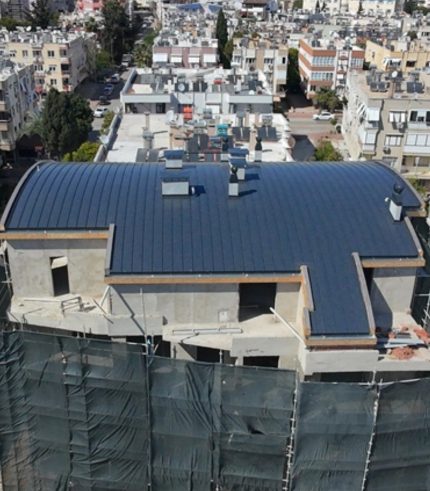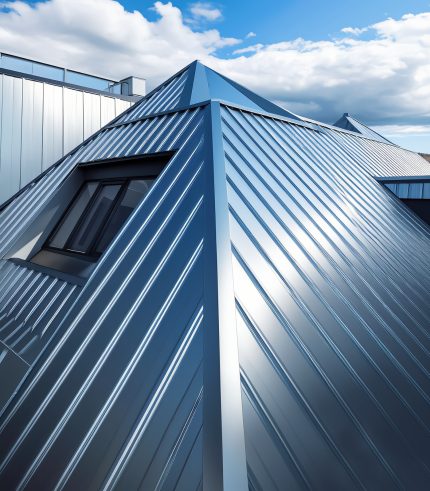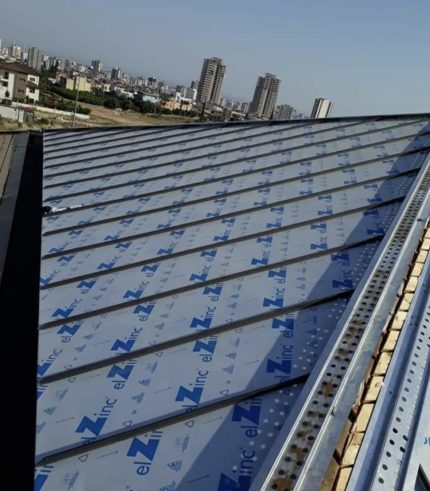Titanium Zinc Standing Seam Roofs: Durable, Efficient, Sustainable
When considering the price-to-quality ratio, standing seam roofing systems are highly economical, offering long-term performance without the need for maintenance. These systems eliminate surface damage caused by weather conditions through the formation of a natural patina, which protects the surface without requiring additional treatment. Thanks to their inherent waterproofing capability, a common feature of all standing seam systems, they offer maximum resistance to all weather conditions.
Why Titanium Zinc?
Titanium standing seam roofs are significantly more durable and longer-lasting than traditional roofing systems. Their lightweight nature prevents excess load on the structure, helping to reduce stress on columns and supports.
Titanium zinc cladding is a sustainable and long-lasting building material, both in terms of its service life and reusability. Titanium zinc is a recyclable, natural metal refined to a high level of purity—comprising 99.995% pure zinc, with copper and titanium added for enhanced performance. Typically produced in 150 kg coils, titanium zinc develops a natural patina over time, allowing minor surface scratches to self-heal. This creates a durable, low-maintenance, and natural roofing solution. Moreover, 95% of titanium zinc can be recycled and reused without any loss of quality.
Chemical Composition (EN 988 Standards)
| Element | Content |
|---|---|
| Zinc | Z1 Grade |
| Titanium | 0.06 – 0.2% |
| Copper | 0.08 – 1.0% |
| Aluminum | ≤ 0.015% |
Dimensional Tolerances
| Property | Value |
|---|---|
| Thickness Tolerance | ± 0.03 mm |
| Width Tolerance | +2 / 0 mm |
| Length Tolerance | +10 / 0 mm |
| Straightness | ≤ 1.5 mm/m |
| Surface Flatness | ≤ 2 mm |
Mechanical Properties
| Property | Value |
|---|---|
| 0.2% Proof Stress | ≥ 100 N/mm² |
| Tensile Strength | ≥ 150 N/mm² |
| Elongation at Break | ≥ 35% |
| Bending Test | No cracks during bending |
| Creep Resistance (1h @ 50N/mm²) | ≤ 0.1% |
Physical Properties
| Property | Value |
|---|---|
| Density | 7.2 kg/dm³ |
| Thermal Expansion Coefficient | 0.022 mm/m/°C |
| Melting Point | 420°C |
| Recrystallization Temperature | 300°C |
| Thermal Conductivity | 110 W/(m·K) |
| Electrical Conductivity | 17 MS/m |
| Spark Risk | None |
| Magnetic Characteristics | Diamagnetic |

